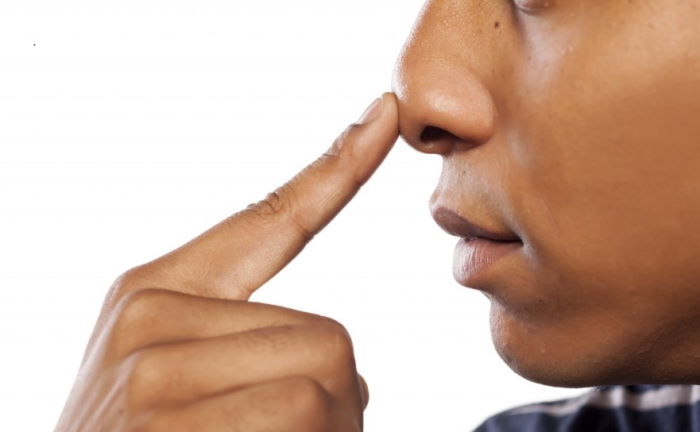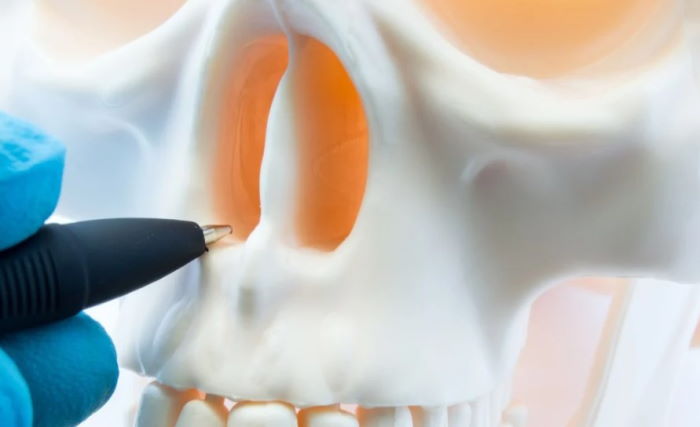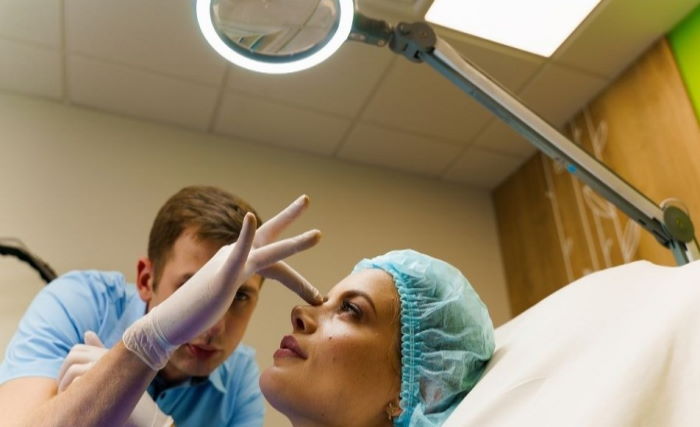According to the University of Chicago Medicine, 80% of adults have a misalignment in their nose, making one nasal cavity larger than the other. A severe case of misalignment is known as a deviated septum. This condition can make it difficult to breathe, especially when you have a bout of nasal allergy. It can also affect the treatment you get if you have sleep apnea.
Therefore, knowing if you have one is essential to help you get informed about your treatment options.
What is a Deviated Septum?
The septum is a cartilage that separates your two nasal cavities. When the septum is ‘deviated’, the nostrils are of two different sizes. Severe cases of a deviated septum can result in difficulty breathing due to obstruction in the nasal passage.
A deviated septum is pretty common, and there are various reasons why this could happen. It can occur because of a congenital disability or blunt facial trauma, especially to the nose. The impact of the injury can dislodge the cartilage from the nose.
Does a Deviated Septum Cause Sleep Apnea?
Sleep apnea is a sleep-related breathing disorder. It can happen due to blockages in the airway or when the brain fails to send signals to your lungs to breathe. You may experience a partial or total stoppage in breathing during sleep. Sleep apnea has many potential causes, and those with a deviated septum are at a higher risk of developing it. This connection between the two is part of why many would assume that these two are related.
However, these two are not mutually exclusive to each other. This means that having a deviated septum does not automatically put you at risk of sleep apnea. But if you have been diagnosed with sleep apnea, this condition can worsen your symptoms due to the obstruction in one of your nostrils. The severity of the symptoms also varies according to the extent of the dent on the septum.
People with deviated septum will most likely breathe through their mouths during sleep. Mouth breathing is one of the common symptoms of sleep apnea.
Signs of a Deviated Septum
How do you know if you have a deviated septum? There are a few tell-tale signs that you should look out for.
The most common sign of a deviated septum is when you have difficulty breathing, especially for unexplained reasons. A person with a deviated septum also snores at night. Other symptoms include the frequency of nosebleeds and obstructions in the nostril. A sure sign that you have a deviated septum is when you have difficulty breathing from one side of the nasal cavity.
If you suspect any of these signs could indicate you have a deviated septum, make sure that you consult a doctor. It is crucial to have a formal medical assessment to evaluate your symptoms. This test will help exclude other conditions that might cause the symptoms, like swollen turbinates and nasal polyps.
Treatment for Deviated Septum
Now that you understand the potential link between a deviated septum and sleep apnea, it leads you to this question: can fixing your septum also cure sleep apnea?
The main treatment option for a deviated septum is through a surgical procedure called septoplasty. This procedure repositions the septum physically to correct alignment. Another procedure to fix this problem is called balloon sinuplasty. This procedure is minimally invasive and realigns the septum using an inflated device.
Unfortunately, fixing the deviated septum won’t treat obstructive sleep apnea. It will improve the severity of the symptoms by curing inflamed tissues and eliminating blockages to the airways. It is an excellent step in your sleep apnea treatment to fix the septum to minimize any side effects. However, it would help if you considered a different treatment for sleep apnea before it becomes life-threatening.
Nasal strips are another recommended treatment option for septal deviation and sleep apnea. The nasal strip can open the airway passage to provide relief and make breathing easier. Some doctors also recommend certain medications to provide relief from symptoms. The most common medications for this condition are nasal steroids, antihistamines, and decongestants. These medications won’t treat a deviated septum directly, but they can reduce the symptoms and side effects associated with it.
If you have deviated septum and sleep apnea, only your doctor can advise of the best treatment option. The correct diagnosis and medical assessment will ensure that you get the proper care you need before the condition worsens.
See a Nose and Sleep Specialist
Do you exhibit any of the tell-tale signs of a deviated septum? If you’re unsure about this condition, you must see an ENT doctor or sleep specialist. These experts will be able to evaluate your symptoms and perform a physical check on you to ensure that your symptoms are assessed correctly.
The extent of deviation for the septum varies from one person to another. Some deviations are more evident than others. However, it will be easy to distinguish for someone with a trained eye.
But why is it essential to get the proper diagnosis for a deviated septum? If you are snoring at night, you need to confirm if the snoring is caused by your deviated septum or something more serious like sleep apnea. These conditions have symptoms that affect the quality of your sleep quality, such as your ability to breathe while you sleep.
Ensure you don’t ignore the signs, so you won’t suffer the more severe health consequences of a chronic lack of quality sleep.
The Bottom Line
Getting quality sleep at night is vital for your overall health. If you struggle with your breathing during sleep, whether it’s due to sleep apnea or a deviated septum, you must seek proper treatment. The right treatment will help you manage the symptoms to avoid unnecessary disruptions to your sleep and help you on your way to restful sleep at night.


























